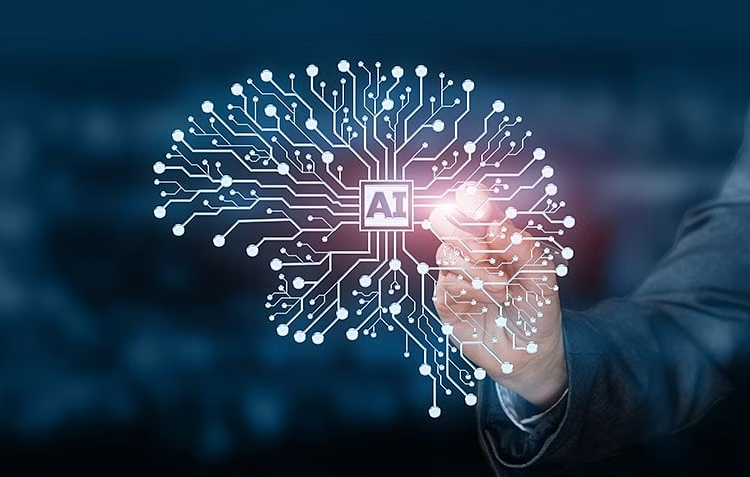The emergence of Generative AI is taking the software development field by a storm—offering tools that boost productivity, creativity, and efficiency. From assisting developers with coding tasks, providing suggestions and potentially speeding up the development process, AI-powered technologies are indeed transforming how developers work.
With the rise and quick adoption of the Large Language Model (LLM), developers are now able to focus on innovation while AI handles repetitive tasks. It’s important to mention that AI is not a substitute for creativity, problem-solving and domain expertise of human developers but rather a tool designed to augment the developers’ capabilities—allowing them to focus on higher-level challenges, innovate faster, and achieve more efficient and impactful results. Below is a list of practical ways developers can harness and leverage the powers of AI tools to boost their productivity and streamline their workflows.
Eliminate repetitive tasks
The field of software engineering is highly monotonous. This is because constantly engaging in repetitive tasks is an inevitable part of the field. In most situations, they tend to consume valuable time and sometimes; mentally exhausting. AI tools are increasingly effective at handling these repetitive workflows, allowing developers to focus on more strategic and creative work. Tasks like refactoring code, documenting code functionality in a given standard format, generating test cases, or even building basic CRUD operations can now be managed with the help of AI, reducing the need for developers to rewrite similar code blocks across projects. In a broader sense, by automating repetitive coding tasks, AI tools enhance productivity and prevent developer fatigue, enabling teams to focus on high-impact features, complex problem-solving, and innovation.
Code suggestions
While autocompletion is not novel to modern IDEs, LLMs are capable of generating longer suggestions—sometimes multiple lines of code that are often more relevant. This enhanced capability allows developers to maintain focus, with AI generating boilerplate code or complex patterns that follow the developer’s coding style and best practices. According to a 2022 research study published on Github on the need to quantify GitHub Copilot’s impact on developer productivity and happiness, it was discovered that developers who used GitHub Copilot coded up to 55% faster than those who didn’t. Also, the benefit of Copilot extends beyond speed. About 74% of developers reported that Copilot helped reduce their frustration. This ease allowed them to shift focus from monotonous coding tasks to more meaningful and engaging work.
Code improvement
AI tools like GitHub Copilot, Cursor, Claude, Tabnine and the host of others can serve as exceptional tools for code improvement especially in the context of peer programming where collaboration and real-time feedback are crucial. As a makeshift peer programmer, AI can assist developers by providing instant suggestions, identifying inefficiencies, and offering alternative solutions that align with best practices. For instance, these tools are efficient at completing code snippets based on context, writing test cases, generating boilerplate code, learning from your codebase to suggest contextually relevant solutions and many others. AI’s ability to work tirelessly and objectively ensures that code quality remains high, even during intense development cycles. When integrated effectively, AI can improve the dynamics of peer programming, transforming it into a more productive and enriching experience for the developer(s) involved.
Code Testing
An automated test whether unit, integration or end-to-end can be a reliable description of the expected behaviour of a program. When properly structured, failing test results can be analysed by generative AI tools like ChatGPT or Claude to determine possible fixes to the code. These tools can then automatically implement fixes and verify they work by running the tests again. AI tools are incredibly great at assisting developers in generating comprehensive test cases for their code. By analysing the existing code, tools like ChatGPT can identify edge cases that might have been overlooked, ensuring a much better test coverage. For example, if a function processes user input, AI can suggest tests for invalid inputs, boundary conditions, and performance under high load. Additionally, these tools are capable of refactoring existing tests to make them more concise and maintainable.
Bug Detection and Error Resolution
Debugging is an essential but time-consuming part of software development. AI tools like ChatGPT, Gemini, V0 from Vercel and many more now streamline this process by identifying bugs, errors, or inefficiencies in the code more quickly and intelligently than ever before. These tools are capable of analysing error-laden codes, flagging potential vulnerabilities, inefficiencies, or bugs and suggesting possible solutions. These tools continuously learn from vast datasets, providing developers with cutting-edge recommendations to fix issues early in the development process. Additionally, Stack Overflow – the most popular developer community platform has now integrated AI-driven bots into their platform. The Overflow AI integration is aimed at providing developers with relevant answers to coding errors or bugs they encounter.
Generate Documentation
Documentation is a crucial aspect of software development, as it enhances code readability, helps onboard new developers, and ensures long-term project sustainability. However, this exercise is often overlooked by developers due to time constraint and how monotonous the exercise can be. However, AI tools have revolutionised this traditionally tedious process by taking on much of the burden. These tools are capable of generating concise and unambiguous documentation in a fraction of time, transforming developer code, comments, and API schemas into well-structured guides or tutorials.
Accelerating Updates to Legacy Codes
Updating an application built with legacy stack into a modern, refined technology stack can be very daunting. This sometimes deters organisations from taking that giant leap—even when such updates could result in substantial business value. Fortunately, leveraging generative AI tools could make this process manageable and less intimidating. From system analysis to development, leveraging AI tools in updating legacy codes has the potential to ensure that modernised applications are built on quality code and robust architectural characteristics, without consuming all your time and resources.
The future of software development is here and it engenders Smart Work, where AI becomes an indispensable partner for developers. By automating repetitive tasks, enhancing debugging and error detection, legacy code updates (with considerable supervision), AI helps developers achieve higher productivity and code quality. Whether you’re a beginner or a seasoned developer, embracing AI in your workflow will help you stay competitive, allowing you to focus on what matters most—innovation, problem-solving, and delivering high-quality software.
We’ve got the edge. Get real-time reports, breaking scoops, and exclusive angles delivered straight to your phone. Don’t settle for stale news. Join LEADERSHIP NEWS on WhatsApp for 24/7 updates →
Join Our WhatsApp Channel










